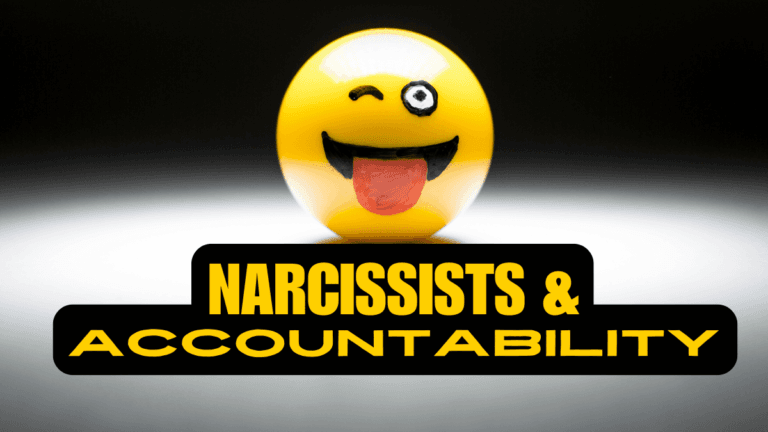Why Standing Up for Yourself Can Feel Wrong in Toxic Relationships: 3 Life Takeaways to Know
Plus How Societal Gender Roles in a Patriarchal Culture impact women's Self-Advocacy
In toxic relationships, standing up for yourself can feel like you’re doing something wrong.
This feeling of guilt or discomfort often arises from the emotional manipulation you’ve experienced over time, where your needs and boundaries have been minimized or dismissed.
It’s a strange and unsettling experience to advocate for yourself, only to feel conflicted afterward, questioning whether you were too demanding or unreasonable.
The truth is, advocating for yourself is not only valid—it’s essential. This article aims to explore why standing up for yourself feels so uncomfortable in toxic environments and how you can begin to navigate these feelings while reclaiming your sense of self-worth.
The Roots of Feeling Wrong for Self-Advocacy
Conditioning in Toxic Relationships
One of the primary reasons why self-advocacy feels wrong is due to the conditioning that occurs in toxic relationships. Over time, you’ve likely been taught—whether explicitly or implicitly—that your needs come second to the other person’s desires (and this may be true especially for women).
This could take the form of manipulation, dismissiveness, or even subtle criticisms that make you question whether your feelings are valid in the first place.
People in toxic dynamics often use tactics like gaslighting (making you doubt your perception of reality) or belittling to keep you unsure of yourself.
When you are constantly told that you’re “too sensitive” or “overreacting” for simply stating your needs, it becomes easier to internalize these accusations. Eventually, you start believing that standing up for yourself is selfish or wrong.
Listen to the Podcast Episode
Emotional Reversal
In many toxic relationships, there’s a pattern of emotional reversal, where you’re made to feel guilty for the very actions that are meant to protect you.
When you assert your boundaries or speak up about something that’s bothering you, the toxic partner may play the victim, making you feel as though you’re the one who has hurt them.
This role reversal further clouds your understanding of what is right and wrong in the relationship, making it difficult to feel confident about self-advocacy.
Why the Discomfort is So Intense
Fear of Conflict or Rejection
Standing up for yourself often brings with it the fear of conflict.
You may have experienced situations where speaking up led to punishment—whether through emotional withdrawal, anger, or outright rejection.
Over time, this creates an association between self-advocacy and negative outcomes. The mere thought of standing up for yourself triggers anxiety about potential conflict or the fear that the other person will pull away, leaving you feeling isolated or punished.
In toxic relationships, this fear becomes deeply ingrained, making the act of self-advocacy not just uncomfortable, but terrifying. You’ve been conditioned to believe that maintaining peace, even at the cost of your own well-being, is preferable to rocking the boat.
Loss of Identity Over Time
Another reason standing up for yourself feels so wrong is the gradual erosion of your identity.
In these environments, your sense of self slowly fades, making it harder to recognize that your voice and your needs are just as important as anyone else’s.
Over time, the constant gaslighting, belittling, and invalidation chip away at your confidence, making self-advocacy feel foreign and unsettling.
Emotional Manipulation Tactics That Cause Guilt
Silent Treatment and Emotional Withdrawal
One of the most effective tools in toxic dynamics is the silent treatment or emotional withdrawal – even stonewalling.
When you assert yourself, you may be met with coldness, silence, or indifference, leaving you to believe that standing up for yourself results in emotional disconnection.
This reinforces the belief that your boundaries or needs are causing harm, perpetuating the cycle of guilt and self-doubt.
Blame Shifting and Deflection
Blame shifting is another common tactic.
When you express a concern or boundary, the toxic person may immediately turn the situation around, making it seem as though you are the cause of the problem.
They deflect responsibility, leaving you feeling confused and guilty for even bringing up the issue in the first place.
This manipulation convinces you that standing up for yourself is not only wrong but is damaging to the relationship.
Love-Bombing and Reward-Punishment Cycles
Some people in toxic relationships use love-bombing—intense affection and attention—to reel you back in when they sense they might lose control.
After a period of love-bombing, you may experience the opposite: devaluation, criticism, or distance.
When you stand up for yourself, this cycle is disrupted, causing you to feel guilty because the immediate reward (affection) is withdrawn. The intermittent nature of this cycle makes self-advocacy feel even more uncomfortable, as you associate it with the loss of affection or attention.
But don’t be discouraged…
Related: The Subtle Insult of LoveBombing
The Power of Self-Advocacy
Reclaiming Your Voice
Despite the discomfort, standing up for yourself is an essential step in reclaiming your voice. It may feel wrong because you’re disrupting a pattern that has conditioned you to stay silent, but in reality, you are doing the right thing by advocating for your own well-being.
The guilt you feel is a reflection of emotional conditioning, not the result of an actual wrongdoing.
Recognizing that your feelings are valid is the first step toward empowerment. Over time, you’ll come to understand that discomfort in these moments is a signal that you’re challenging an unhealthy dynamic, not that you’re in the wrong.
What Healthy Boundaries Look Like
Setting boundaries is a key part of self-advocacy, but many people in toxic environments struggle to define what those boundaries should look like.
Healthy boundaries are personal limits you set to protect your emotional, physical, and mental well-being. Examples include:
- Saying no to unreasonable demands
- Asking for respect in conversations
- Prioritizing your needs without guilt
It’s important to understand that boundaries are not about punishing others, but about creating a space where you feel safe and respected. Over time, these boundaries will become easier to set as you rebuild your confidence and self-worth. Too, when you exert a boundary and/or stand up for your self, you will quickly learn who is with you and who is against you.
Related: Do Women Deserve Respect?
Navigating the Guilt After Standing Up for Yourself
Dealing with the Immediate Emotional Backlash
The immediate emotional backlash after standing up for yourself can be intense. You may feel overwhelming guilt, fear of conflict, or even a sense of loss. To navigate this, it’s helpful to have coping strategies in place, such as:
- Journaling your thoughts to reflect on why you felt the need to stand up for yourself
- Talking to a trusted friend or therapist who can validate your experience
- Grounding exercises like deep breathing or mindfulness to stay connected to the present moment
These tools can help you manage the emotional weight of standing up for yourself, allowing you to process the discomfort without retreating back into silence.
Remind Yourself Why You Are Doing This
When guilt surfaces, it’s important to remind yourself of the reasons behind your actions. Self-advocacy is not about harming the other person; it’s about protecting your own well-being.
By standing up for yourself, you are affirming that your needs, feelings, and boundaries are valid and deserve respect.
Rebuilding Confidence and Self-Worth
Small Wins Lead to Larger Change
Change doesn’t happen overnight, and that’s okay. Every small act of self-advocacy, no matter how uncomfortable, is a step toward reclaiming your power. Celebrate the small wins, even if they come with a sense of guilt. Over time, these small victories will accumulate, helping you to build the confidence to stand up for yourself more consistently.
Support Systems and Healing
Finally, it’s essential to surround yourself with a support system that reinforces your worth and validates your experiences. Whether it’s friends, family, or professional support, having people who affirm your journey can be invaluable as you navigate the complex emotions tied to standing up for yourself.
Standing up for yourself in a toxic relationship is difficult because of the emotional manipulation and conditioning you’ve endured over time.
The feelings of guilt or discomfort you experience are not a reflection of wrongdoing but are tied to long-term patterns that you are now breaking.
With time, patience, and self-compassion, you can begin to reclaim your voice, set healthy boundaries, and rebuild your confidence. Standing up for yourself is not wrong—it’s an act of self-love.

Societal Implications of Gender Roles and Self-Advocacy
In addition to the personal dynamics that make self-advocacy challenging, there are broader societal factors at play, particularly regarding gender roles.
Women, in particular, are often conditioned to prioritize the needs of others, to avoid conflict, and to maintain peace—even at the expense of their own well-being.
This is a reflection of the deeply embedded misogynistic and patriarchal structures that have long dictated what is considered “acceptable” behavior for women.
Gendered Conditioning and Self-Advocacy
From a young age, many women are socialized to be accommodating, nurturing, and self-sacrificing.
These gendered expectations make it difficult for women to assert their needs without feeling guilty or selfish.
When women attempt to stand up for themselves, they often face backlash, not only from individuals in their immediate relationships but from society at large, which views self-advocacy in women as disruptive or unfeminine.
This societal conditioning is a significant reason why women may struggle more intensely with self-advocacy. They are not just contending with the emotional manipulation present in toxic relationships but also with the broader cultural expectation that they should be submissive, agreeable, and silent.
Patriarchal Resistance to Women's Self-Advocacy
In many cases, men may feel uncomfortable when women begin to reclaim their voice.
This discomfort stems from the fact that women’s self-advocacy challenges the patriarchal norms that have long given men power and control in relationships and society.
When women speak up, it threatens the status quo, causing many men to react defensively or dismissively.
This dynamic often manifests as a continued effort to silence women, whether through minimizing their concerns, gaslighting, or outright resistance to their boundaries. Rather than examining their own behavior or the societal conditioning that influences their actions, men may instead double down on these harmful norms, perpetuating a system where women are discouraged from self-advocating.
The Misogynistic Undertones of Resistance
The resistance to women’s self-advocacy is not just a personal or relational issue—it is rooted in a larger culture that has long devalued women’s voices.
Misogyny, both overt and subtle, plays a significant role in this dynamic. When women assert their needs, they are often labeled as “difficult,” “emotional,” or “aggressive,” all of which are deeply gendered criticisms designed to put them back in their “place.”
By keeping women’s voices silenced, these societal norms remain unchecked and unchallenged. Men, who benefit from these structures, may not be consciously aware of their role in perpetuating this system, but their discomfort with women’s empowerment reveals the underlying threat to their conditioned sense of control.
Breaking the Cycle
For women to reclaim their voice, it’s essential to not only navigate the emotional dynamics of their relationships but also to recognize and challenge the broader societal norms that make self-advocacy feel so uncomfortable. This means confronting the patriarchal structures that have silenced women for generations and recognizing that true empowerment will often be met with resistance—both on an individual level and within the larger social fabric.
Ultimately, breaking the cycle of silence requires both individual courage and a collective effort to shift cultural expectations. As more women stand up for themselves, they pave the way for a future where self-advocacy is not seen as a challenge to the status quo but as a fundamental right for all.
standing up for yourself standing up for yourself standing up for yourself standing up for yourself standing up for yourself standing up for yourself standing up for yourself standing up for yourself standing up for yourself







